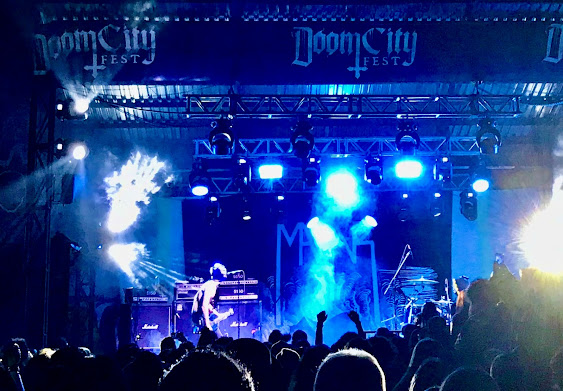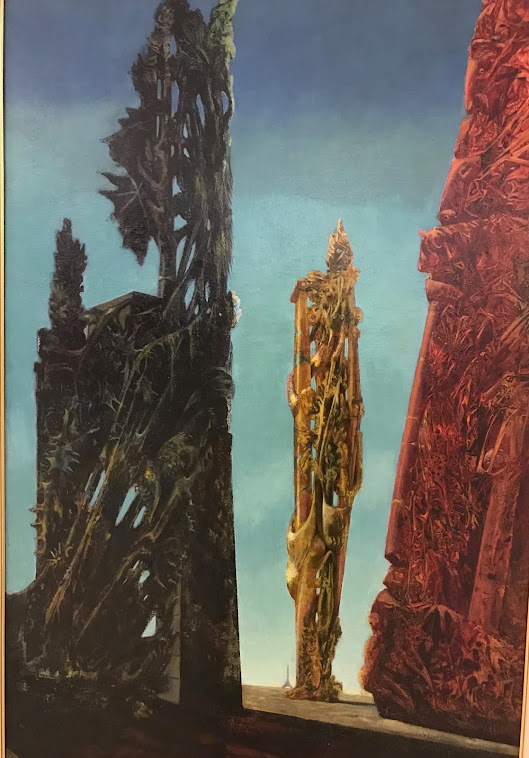
(Drivebycuriosity) - The US economy is still growing in spite of the
damages done by President Trump`s trade war. The expansion is kept
alive, in face of a shrinking manufacturing sector and falling
industrial production, thanks to the advancing service sector driven by
the big tech companies. Rapid growth at Microsoft, Apple, Amazon &
Google is fueling the US economy and compensating weaknesses in some
parts of the US economy. Unfortunately a phalanx of politicians and
bureaucrats wants to throw
sand in the gear of the economy. They are going after the big tech
companies, causing huge costs and are making lives of their CEOs
miserable.
President
Trump seems to perform a crusade against Amazon and threatens the
e-commerce pioneer and other tech companies with extended regulation. The
President called the success of Amazon and Google a “huge antitrust
problem” and
declared "The European Union is suing them all of the time. Well, we
should be doing this. They're our companies" (exponents reason). Trump is reportedly upset that his friends in the real-estate business
complain that Amazon is responsible for the decline of the shopping
center (nationalreview).
The conservatives get a lot support from the left. Senators Elizabeth Warren, Bernie Sanders and
other liberals want to break up technology giants like Google, Facebook,
Apple & Amazon (stratechery washingtonpost). Sen. Warren claims: "Today’s big tech companies have too much power — too much power over our
economy, our society, and our democracy. They’ve bulldozed competition,
used our private information for profit, and tilted the playing field
against everyone else. And in the process, they have hurt small
businesses and stifled innovation" (teamwarren). She declares she wants to “ensure that there are more representatives
from labor, environmental, and consumer groups than from corporations
and trade groups on every existing advisory committee” (vox).
Politicians on the left and right side want to gag the big tech companies, to
oversee & to constrain their business. Big powerful American
bureaucracies join the crusade. The Justice Department is investigating Alphabet’s Google and Apple while the FTC is probing
Amazon & Facebook to determine if they abused their allegedly massive market
power, setting up what could be unprecedented, wide-ranging probes of
some of the world’s largest companies.
The crusaders against Big Tech ignore that the power of companies is always constrained by competition. When a corporation
has success, her rising profits attract automatically others who want a
share from the pie. The Internet makes it very easy to
compare prices and to switch to other
shops, news providers & entertainers, sharpening the competition. Customers can choose the company
which has the best quality, the best service and/or the lowest prices
which gives the consumers a lot power. As a result, customers have more power
than the corporations.
Amazon´s success has been
animating a legion of
copycats who also want to benefit from the ascent of e-commerce. Today
Amazon is competing against WalMart, who owns Jetcom, and
online buyers can also shop at Target, Best Buy and myriads of other
e-commerce companies including Shopify, a rapidly growing e-commerce
platform. Even Instagram, owned by Facebook, develops as an
e-commerce-platform where producers of consumer goods can offer their
products. Amazon`s cloud business AWS is getting challenged by
Microsoft, Google, IBM, Oracle and other companies who also want to have
a large piece from the pie. Apple, as producer of smartphones, iPads
& computers, is competing against Samsung, Huawei and a lot of other
technology companies. Google & Facebook depend on advertising
dollars. They are competing against each other and myriad of other media
companies.
If we believe Warren & Co. big companies are evil. Are they? Big
Tech doesn`t need to be our friend, but the tech giants have to behave
friendly otherwise they would go out of business. Adam Smith declared
“it is not from the benevolence of the butcher, the
brewer, or the baker that we expect our dinner, but from their regard to
their own interest”. That is also true for Big Tech. If Amazon would
treat their customers unfriendly, if they would sell too expensive,
deliver too slow & too unreliable, then customers would buy at Walmart, Ebay or
elsewhere. That is the magic of competition. Because Big Tech has to
compete against others they have to behave like friends. And competition
is fierce as the sharp online revenue growth @ Walmart, Shopify & Target demonstrate.
While politicians on the left and right seem to hate big corporations, the
people - the consumers - love them. We all are benefiting a lot from Big Tech. Consumers love to get goods delivered
cheap and fast from Amazon, buy gadgets from Apple, search on Google
and use the free services from Twitter, Facebook & Instagram. People use Facebook to
communicate with relatives & friends for
free, they use Instagram to spread their photographs without paying for
it. I employ frequently Google maps and other services without getting charged. Amazon translates her experience &
efficiency into low prices which forces the competitors also to sell
cheaper. As a result Amazon and other e-commerce companies are keeping
inflation at bay which translates into low interest rates - keeping America`s economic expansion alive
(Amazon-effect).
I am really happy to buy Kindle e-books for a
relatively low prices, why is that a problem for Sen. Warren & Sen. Sanders? Amazon is
also a platform which allows even tiny businesses - including many
unknown book authors - to sell their products globally. And the cloud
services by Amazon, Microsoft and Google - who all are fiercely
competing against each other - allow other companies, including tiny
startups, to reduce their expenses for information technologies and to
expand their businesses. All these services & products benefit the
whole economy and the society.
Sen.Warren claims that Big Tech companies "have hurt small
businesses and stifled innovation". Really? Did she ever hear of Uber, Lyft,
Arbnb & Pinterest? These so-called unicorns came out of nowhere. They were founded just years
ago and are already valued $20 billion and more (nypost).
Casper, who sells mattresses online, became a brand name almost over
night. Did Amazon stop them? Nope! WeWork, a company that provides shared workspaces, was founded
in 2010 — just nine years ago — and was temporarily valued at $45 billion to $50
billion (nypost).
The enormous success of Amazon, Facebook & Google is
stimulating talents to start new & disrupting (innovative)
businesses (me too effect) and animates huge venture capital funds to invest massively in newcomers, fueling competition & innovation. It
seems we are experiencing a Cambrian explosion. There are so many new
& rising companies which are changing society & economy - on the
coat-tails of Big Tech.
Warren, Sanders & Co. they
don`t care about the beneficial functions of Big Tech, they want to
implement more bureaucracy ("representatives
from labor, environmental, and consumer groups") which would slow down
innovation, reduce productivity and would creative expensive jobs for
commissars. Politicians, like Republican Senator Josh, are notching up
their career wins by targeting the Big Tech bogeymen (washingtonexaminer).
More regulation encourages corruption because powerful politicians & bureaucrats can blackmail corporations by threatening them to regulate them more (ssrn.com).
The implied inquiries & subpoenas employ thousands of high paid
lawyers and are burning so a lot of tax payers money which could be used
for education or health care. The anti-tech crusade creates a lot of highly attractive job opportunities for anti-trust lawyers and
university employees which attracts many young talents. Instead moving
into technology, medical research and other sciences, which would benefit the
society, these people are wasting their talents in unproductive
skirmishes. As a result the anti-tech crusade will slow down economic
growth and harm everybody who
does not live from the money of the taxpayers
Did Trump, Warren & Co. ever notice that there is world outside of the US?
If the US government would curb her tech giants ore break them up they
would support the global competitors. China has been highly supportive of its own tech sector to foster her economic growth and to catch up with the USA. The Peoples Republic already has fast growing tech giants
like Huawei, Alibaba, Baidu & Tencent; Latin America`s e-commerce is ruled
by Mercado Libre and Russia´s Internet is dominated by Yandex. The foreign
giants would be happy to inherit the turf of Google, Amazon & Co.
and to overtake the global markets. America`s anti-tech crusade is giving China, Russia and other countries a huge advantage.
Antitrust law
is designed to protect the consumers. Big Tech are serving the
consumers, the society, by spurring price reductions, delivering better
quality & innovation. US politicians are making the world a poorer
place by fighting the quartet of Google, Amazon, Facebook, and Apple.
































